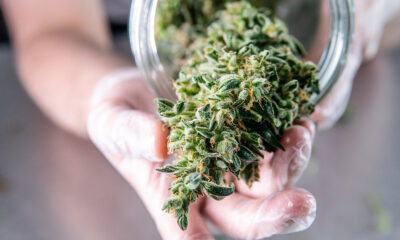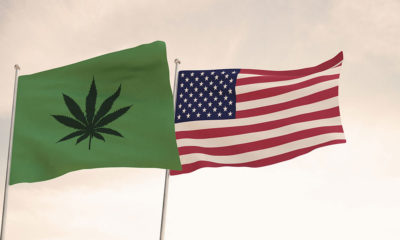
Legal
Marijuana Rescheduling Announcement Could Be a Huge Let Down
Some of the biggest news circulating around the marijuana community over the past week is word that U.S. Drug Enforcement Administration plans to offer a decision sometime before August as to whether the agency will downgrade the Schedule I classification of the cannabis plant.
A 25-page memo sent out last week to members of Congress in response to a 2015 letter urging the federal government to unleash some of the restrictions that prevent medical marijuana research, indicates that Uncle Sam’s leading drug henchmen hope “to make a decision on whether to reschedule marijuana before the end of summer 2016.” Of course, the moment Matt Ferner of The Huffington Post published his initial report it spawned a legion of misleading press coverage that seems to have conned a significant number of pot advocates across the nation into thinking that a marijuana reschedule is inevitable.
What appears to be true is that the DEA has received an evaluation from the Food and Drug Administration over the scientific and medical evidence surrounding marijuana. It was revealed in 2014 that Health and Human Services was planning to review the data surrounding the safety and effectiveness of marijuana for the FDA, with the potential outcome credited as being a huge determining factor for whether a recommendation would be issued for a lesser schedule. Although the agency did not specify how long their eight-factor analysis would take, it did suggest that this decision could lead to a recommendation for a Schedule II listing – an admission by the federal government that cannabis has a place in medicine.
Unfortunately, this is not the first time the DEA has responded to the call of removing marijuana from the same schedule listing as heroin. Throughout the course of the past two decades, the DEA has been petitioned for a reschedule several times – some of which have been rejected while other remains undecided. In a recent analysis by Jacob Sullum, senior editor at Reason Magazine, he points out that the DEA is infamous for dragging its feet on rescheduling petitions, suggesting that the agency’s lingering decision should, in no way, be construed as serious consideration.
“This sort of delay is typical of the way that the DEA responds to rescheduling petitions, and it should not be interpreted as evidence that the agency is giving the issue more careful consideration than it has in the past, let alone that it has changed its position,” Sullum wrote.
While the Obama Administration has been somewhat more progressive on its stance toward marijuana than those of the past, there has been no indication that President Obama is gunning for nationwide change before he leaves office. In fact, earlier this year, White House press secretary John Earnest said that marijuana reform was not on the President’s agenda for the duration of his term. Furthermore, it has always been Obama’s stance that “what is and isn’t a Schedule I narcotic is a job for Congress,” which more than suggests that the Administration has opted to leave this decision up to a future president.
What’s more, according to Sullum, is that if DEA Acting Administrator Chuck Rosenberg were planning to sign off on an effort to reclassify cannabis under the Controlled Substances Act, we would have seen some government research being conducted over the past couple of years aimed at determining whether marijuana meets the criteria needed to make such a momentous change.
“The DEA has always insisted that marijuana cannot be moved until its medical usefulness has been confirmed by the kind of expensive, large-scale clinical studies that the Food and Drug Administration demands before approving a new medicine,” Sullumn wrote, adding that the federal government has never conducted any whole plant studies.
In an apparent response to the increasing interest over the ability of cannabidiol (CBD) to control seizure frequency in epilepsy patients, the latest DEA memo indicates that the agency also plans to conduct a separate review in order to determine whether the non-intoxicating compound of the cannabis plant should be given a less restrictive classification.
So, while major newspapers like The Los Angeles Times have said, “It’s heartening that the federal government is reconsidering this misguided policy,” most drug policy experts are not convinced that change is on its way.
What do you think? Is the recent DEA memo good news for the potential rescheduling of marijuana?























